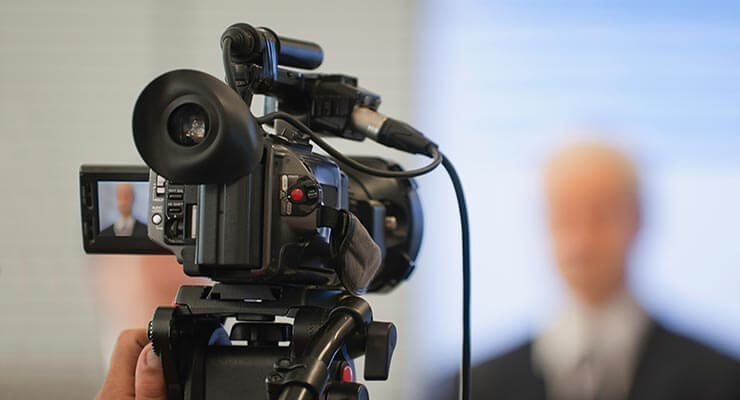Tailored Legal Videography for Legal Professionals.
The Duty of Lawful Videography in Depositions and Trials
Lawful videography has arised as an important device in both depositions and trials, supplying a multifaceted technique to documenting witness statements. As lawful experts significantly recognize its worth, it motivates a deeper assessment of how these visual records can affect juror perceptions and trial end results.

Significance of Lawful Videography
Lawful videography plays a pivotal function in the documents and presentation of depositions and trials. This specific area incorporates technical skills with legal understanding to develop a reliable record of procedures that can dramatically affect case outcomes. The visual element of lawful videography improves the understanding of witness testament, permitting jurors and courts to observe not only the spoken words but also the attitude, feelings, and body movement of the witnesses.
On top of that, legal videography provides an unbiased account of occasions, lessening the capacity for misconception that can accompany written transcripts alone. This aesthetic paperwork functions as a critical device during trial discussions, assisting in a clearer and more influential story for both plaintiffs and defendants. In addition, the capacity to replay video segments throughout court procedures enables lawful teams to emphasize bottom lines, reinforcing their debates successfully.
The value of legal videography prolongs beyond the court; it also plays a crucial role in maintaining evidence for future referral, whether for appeals or more lawsuit. Its combination right into the legal process is crucial for guaranteeing a reasonable and accurate representation of the realities, ultimately contributing to the quest of justice.

Refine of Legal Videography
While capturing the nuances of depositions and trials, the process of lawful videography entails numerous critical steps that guarantee top notch, exact recordings. A professional legal videographer prepares by assessing the case materials and comprehending the details needs of the deposition or test. This prep work includes familiarizing themselves with the individuals and the context, which helps in catching essential details.
On the day of the recording, the videographer establishes the required tools, which commonly consists of high-def cams, microphones, and appropriate illumination. Making sure ideal angles and sound quality is crucial, as it straight influences the efficiency of the recording. The videographer interacts with attorneys and individuals to develop procedures, guaranteeing that everyone understands the recording procedure.
During the deposition or trial, the videographer diligently videotapes the procedures, paying close interest to both spoken and non-verbal signs. This includes capturing the temperament and responses of witnesses and attorneys. After the session ends, the videographer might edit the video for clearness and compliance with lawful requirements, producing a last product that properly shows the proceedings for future referral and use in lawful contexts.
Benefits in Depositions
The incorporation of videography in depositions uses various benefits that improve the total procedure of collecting proof. One primary advantage is the ability to catch witness testimonies with aesthetic and acoustic fidelity, providing a much more exact representation of the witness's demeanor, tone, and body movement. This multidimensional approach enables lawyers and juries to examine trustworthiness more successfully than traditional written transcripts alone.
In addition, videographed depositions act as a powerful device for preserving statement. Needs to a witness become not available for test, their tape-recorded visit this site right here deposition can be played in court, making sure that their evidence remains easily accessible and pertinent. This aspect substantially lowers the risk of losing critical information that might affect situation outcomes.

Last but not least, videography boosts the overall professionalism and reliability of the deposition process, instilling confidence in customers regarding the thoroughness of their lawful depiction (legal videography). By leveraging modern technology, lawful experts can considerably enhance the effectiveness of depositions
Influence On Tests
In lots of trials, the integration of videography can significantly affect the presentation of evidence and the court's understanding. Legal videography records witness statements and vital evidence in a vibrant style, allowing jurors to involve with the material on multiple degrees. This visual helpful resources part improves the storytelling facet of a trial, providing context and psychological resonance that typical text-based evidence moved here might do not have.
Moreover, video clip recordings can act as effective tools for impeachment throughout cross-examination. When disparities develop between a witness's previous statements and their court testimony, video clip evidence supplies an objective recommendation that can sway jurors' viewpoints. This immediacy and clarity can boost the trustworthiness of an event's narrative while all at once weakening opposing debates.

Future Trends in Legal Videography
As we look towards the future of lawful videography, numerous emerging patterns guarantee to reshape its role within the courtroom. One significant trend is the integration of artificial knowledge (AI) in video clip evaluation and modifying. AI can enhance the process of identifying key moments in videotaped depositions, permitting lawyers to rapidly access relevant content, thereby boosting performance in situation preparation.
In addition, the increase of online reality (VIRTUAL REALITY) and increased truth (AR) technologies is anticipated to change how jurors experience proof. legal videography. By submersing jurors in a simulated environment, these modern technologies can supply a more profound understanding of complex scenarios, resulting in even more enlightened deliberations
Moreover, the raising demand for remote depositions, sped up by the COVID-19 pandemic, will likely continue. Legal videographers will require to adapt to brand-new software and systems to make sure premium recordings in virtual setups.
Lastly, the expanding emphasis on data security will certainly necessitate more stringent protocols for keeping and sharing video clip evidence. As the lawful landscape develops, lawful videographers must remain abreast of these trends to preserve their importance and efficiency in the judicial procedure.
Conclusion
In recap, lawful videography offers a crucial function in the judicial process, improving the stability of depositions and tests. As modern technology proceeds to advance, lawful videography is poised to further transform its role within the legal landscape.